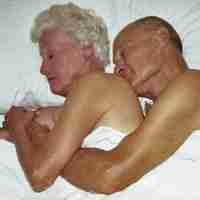Sexual health

Historically there has been little discussion of the sex lives of the over-50s, with most conversations, education and sexual health campaigns focusing on young people and adults. This lack of focus has created an assumption that sexual health is an issue only for the young, or even that people entering their sixth decade and beyond are not having sex. These inaccurate assumptions have created gaps in the provision of sexual health services for an increasing population of over-50s, and created taboos that do not reflect the lives and experiences of our age group.
Most of us grew up during the sexual revolution of the 1960s and 70s, a time of greater exploration around sex and sexuality. The contraceptive pill was introduced, enabling women to take steps to control pregnancy, but it wasn’t until the early 1980s that sex education began encouraging more open conversations not only about sex, but specifically about sexual health. Even then safe sex, HVI and STI campaigns were mostly targeted towards the gay community and to young people in schools, rather than providing information about safer sex for everyone throughout their lives. This has led to a lack of awareness in some older people of the issues arising from unsafe, undiscussed sexual encounters.
Lack of sexual health education and information for older people puts us at risk of potential harm from STIs which are diagnosed too late. A combination of weaker immune systems, age-related illnesses and STIs – which may not have obvious symptoms at first – means that older people may not be aware of being infected until permanent damage has occurred. Silent avoidance resulting from shared embarrassment and avoidance of the issue by caregivers and health professionals can too easily result in reinforcing our own fear and reluctance to discuss sexual health issues.
Older people have just as much right as anyone to good sexual health. Freedom to express our sexuality and enjoy intimate relationships are essential, but taking responsibility for our own health and that of our intimate partners is just as important. If you don’t know your sexual health status and find it impossible to discuss it with your sexual intimates then you put yourself, them, and anyone else in their intimate circle at unnecessary risk. It’s not worth it. If you want to be free to explore sexually, get advice, get tested, and then enjoy yourself!





